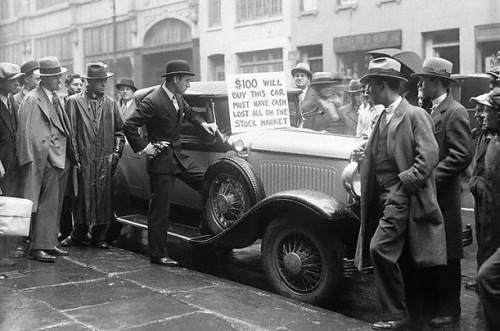After almost seven years of relative calm and stability, a stock market crash is finally upon us. This is a very predictable crash stemming from a very widely known cause. Hundreds of analysts including myself — following the trail illuminated by Michael Pettis — have for a long time been banging on about a Chinese slowdown gathering an uncontrollable momentum, sending China into a panic, and infecting global markets. What’s less clear yet is whether this is a correction or a crisis. My view is toward the latter, simply because confidence is fragile. Once the animal spirits of the market turn negative, it takes a heck of a lot to soothe them. And the markets look increasingly spooked. The fear is rising. Last week I tweeted that I felt the risks of a new financial crisis are greater than ever. The reasons why are simple: Western central banks have gone a bit nuts, and are trying to hike rates even though inflation is close to zero even after interest rates being at zero for seven years. And Western governments have gone a bit nuts (especially in the eurozone and Britain but also to a lesser extent in the United States) and are trying to encourage growth with austerity even though all the evidence illustrates that austerity is only a helpful policy in a booming economy, not in a slack one.
Topics:
John Aziz considers the following as important: austerity, bernanke, central banks, Current Affairs, Economic History, Federal Reserve, fiscal policy, janet yellen, Keynes, keynesianism, mark carney
This could be interesting, too:
Angry Bear writes A Fiscal Policy in a Global Context?
Merijn T. Knibbe writes More ´Natural rate of unemployment´ busting, bad measurement edition.
Lars Pålsson Syll writes The Road Not Taken
Robert Waldmann writes The 0.5% Reduction of the Federal Funds Rate
After almost seven years of relative calm and stability, a stock market crash is finally upon us.
This is a very predictable crash stemming from a very widely known cause. Hundreds of analysts including myself — following the trail illuminated by Michael Pettis — have for a long time been banging on about a Chinese slowdown gathering an uncontrollable momentum, sending China into a panic, and infecting global markets.
What’s less clear yet is whether this is a correction or a crisis. My view is toward the latter, simply because confidence is fragile. Once the animal spirits of the market turn negative, it takes a heck of a lot to soothe them. And the markets look increasingly spooked. The fear is rising. Last week I tweeted that I felt the risks of a new financial crisis are greater than ever.
The reasons why are simple: Western central banks have gone a bit nuts, and are trying to hike rates even though inflation is close to zero even after interest rates being at zero for seven years. And Western governments have gone a bit nuts (especially in the eurozone and Britain but also to a lesser extent in the United States) and are trying to encourage growth with austerity even though all the evidence illustrates that austerity is only a helpful policy in a booming economy, not in a slack one.
Those two factors weren’t too destructive in an economic situation where there was moderate economic growth. More like a minor brake on growth. Keep swimming forward, and sooner or later inflation will rear its head, and rates will have to be raised. But with a stock market crash and a growth downturn, and an unemployment spike, and deflation, things get very problematic very fast.
Let me explain how I think this plays out: interest rates are at zero. Inflation is almost at zero, and a stock market crash will only push that lower. Simply, this is the bottom falling out of the bottom. A crash here is like falling off the bicycle in spite of the Fed’s training wheels. Unconventional monetary policy has already been exhaustively tried, and central bank balance sheets are already heavily loaded with assets purchased in quantitative easing programs. Now the Fed’s balance sheet does not excessively concern me — central banks can print all the money they like to buy assets up to the point of excessive inflation. But will that be enough to reverse a new crash?
Personally, my doubts are growing. At the zero bound, I believe Keynes was right, and fiscal policy is the best answer. The post-2008 economic landscape has been defined by monetarists trying desperately to perfect new tools like quantitative easing to avoid outright debt-financed fiscal policy. But there have been problems upon problems with the transmission mechanisms. Central banks have succeeded at getting new money into the banking system. But the drip of that money into the real economy where it can do its good work and create growth, employment and prosperity has been slow and uneven. The recovery is real, but weak, even after all the trillions of QE. And it has left us vulnerable to a new downturn.
If the effects of the crash cannot be reversed with monetary policy, that leaves fiscal policy — that old, neglected, unpopular tool — to fight any breakouts of deflation or mass unemployment.
Or it leaves central banks to try really radical policies that emulate the directness of fiscal policy, like literally throwing money out of helicopters or OMFG.

